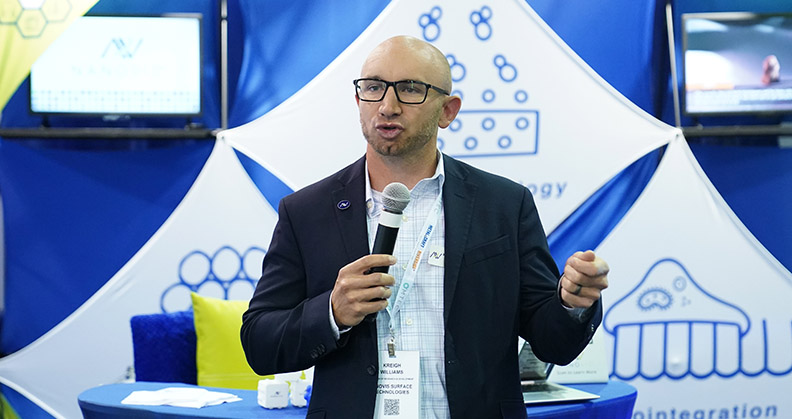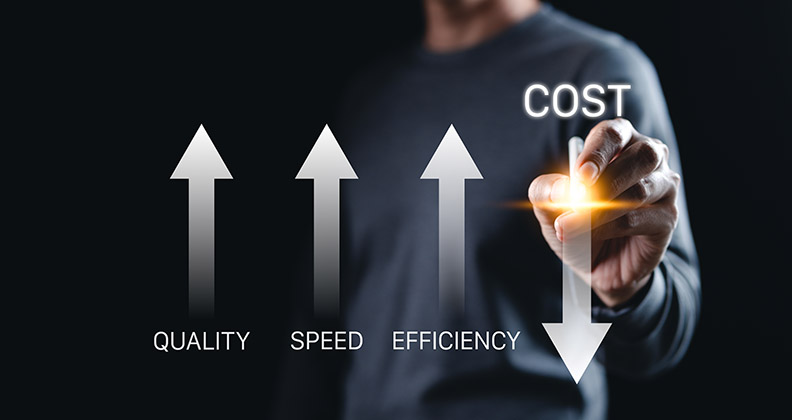
You’re likely going to seek greater influence and decision-making power at some point in your career. But how do you demonstrate that interest and make your voice heard in a way that garners attention and greater respect? Seeking out different perspectives is one way.
A Dear HBR podcast from June 2020 focused on frustrated engineers. The experts answered questions from three engineers in complex situations. One theme that ran through the questions was how to gain influence within your company. We identified a set of advice given over and over despite the diverse examples. To gain influence, you should diversify your perspective, practice empathy and speak the language of leadership.
The technically demanding work engineers face often prevents them from seeing the bigger picture of the relationships and business activities that exist in their workplaces, said Richard Sheridan, an engineer, CEO and author of the book Joy, Inc.: How We Built a Workplace People Love.
“They have an important perspective, but it can be a narrow one based on their engineering work,” Sheridan said. “As engineers, we are wired to see things a little more black and white because we’re trying to figure out not only how to get things to work, but also how to make sure they don’t break in dramatic ways.”
As you consider how to manage your own career, whether it be day-to-day decisions or long-term professional goals, we thought this advice was practical and worth sharing.
Diversify Your Perspective
It’s easy to get siloed within an organization, especially one that doesn’t prioritize or falls short of successful cross-departmental communication. To broaden your perspective on different functions within your company, you need to take an active approach to understand how others work and how decisions are made.
In one listener question, the engineer worked at a small startup from early on in the company’s founding. He initially enjoyed his company’s free flow of ideas, but the culture of his workplace had shifted and made it harder for his voice to be heard—a frustrating situation due to his robust technical experience and history with the company.
“The general advice I would offer in this case is to volunteer for activities at your company that are outside of your engineering perspective and job,” Sheridan said. “For example, if a salesperson needs a technical person to go along on a sales call, raise your hand and say, ‘I can go.’ See if they take you up on these opportunities. See if you get a chance to in some ways see the perspective from the other side. Often what I found in my career is that from the engineering perspective, and particularly as the team grows and there’s more specialization inside the organization, you can get to the point where you’re feeling isolated from the business.
“The simple concept here is to practice empathy with others on the team. Try and see the problems that the business is facing from different perspectives.”
Empathize with Others
Continuing on with Sheridan’s last point, empathy can go a long way in forming relationships with peers and managers. Each role within an organization faces its own unique set of challenges. The more you’re able to recognize those challenges and understand how they impact small and big decisions, the more likely you’re able to think critically about situations and bring ideas to the conversation.
In one listener example, a young engineer was often frustrated when he disagreed with decisions that were made by those with less technical expertise. The company culture was one that even if he disagreed with the decision, he still needed to commit to seeing it through.
Sheridan advised frustrated engineers to “get curious” when they feel furious.
“Every engineer I ever met wants to do good work,” he said. “So, now the question is how do you peer into what that seemingly irrational behavior is? And the best way to do that is simply to get curious. Start asking questions that show you want to know why that person is thinking this way.”
Showing curiosity and empathy about decisions demonstrates that you realize that situations are complex and that you are serious about wanting to influence decisions that are made.
“We think he should try to use empathy and to try to understand more broadly what the boss is thinking, what pieces of information the boss understands, or is factoring in that the engineer doesn’t see or isn’t weighing heavily enough,” said Dan McGinn of HBR. “So, we think the first thing here is better communication around the decision. Rich had the line, when furious, get curious. Ask good questions. Don’t do it in a hostile or skeptical way, but just make clear, I’d really like to understand this better than I do right now.”
Speak Their Language
Once you’ve gained insight and knowledge into others’ perspectives, you’ll be better armed to speak their language and potentially influence future decisions.
Sheridan said he once brought an idea to his boss that he was convinced would save his company, but the CEO said no. He went to him again with the same proposal, but this time he applied the technical aspects of his idea to the challenges the CEO faced running the company, and it was approved that afternoon.
“I did have the right idea, but I had the wrong approach,” Sheridan said.
The experts noted that if you want to increase your influence, you need to come from a place of deep awareness of all sides of the challenge and not trying to ensure that your idea wins. Sometimes, the best way to exert influence, they said, is to give your ideas away to others.
Take One Step at a Time
Gaining influence within your team or your company takes time and a few calculated steps. Ultimately, it’s important that as an engineer you understand where and how your work fits into the bigger picture of the company. By broadening your relationships within your company, demonstrating empathy toward colleagues’ ideas and bringing well-thought-out ideas to the table, you’ll not only have a deeper insight into how your role impacts the overall business but you may be recognized as someone who can and should influence decisions.
The full podcast and a list of recommended readings on the topic are available.
PM
Patrick McGuire is a BONEZONE Contributor.




